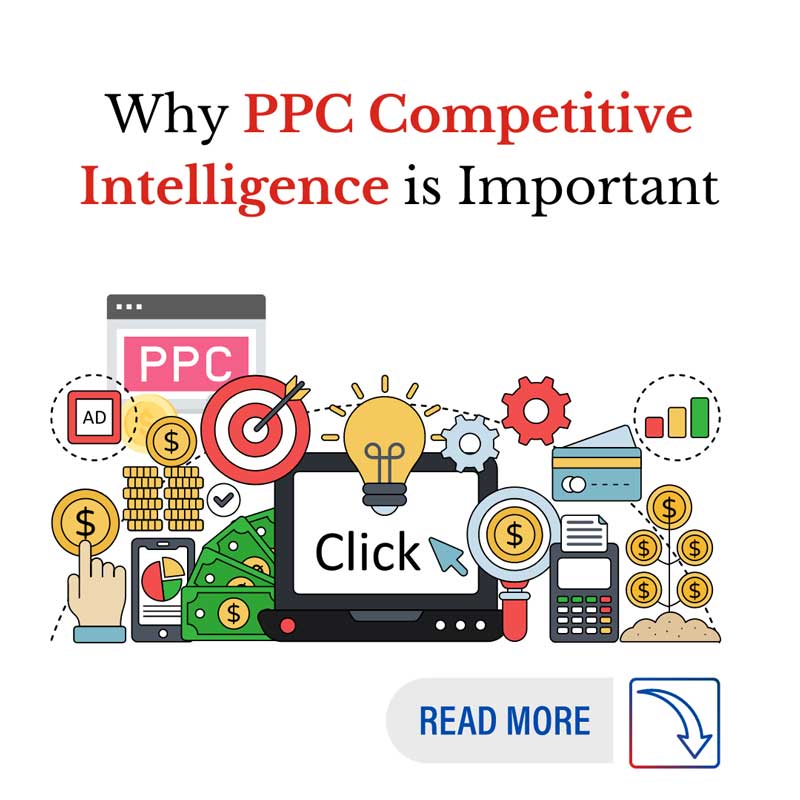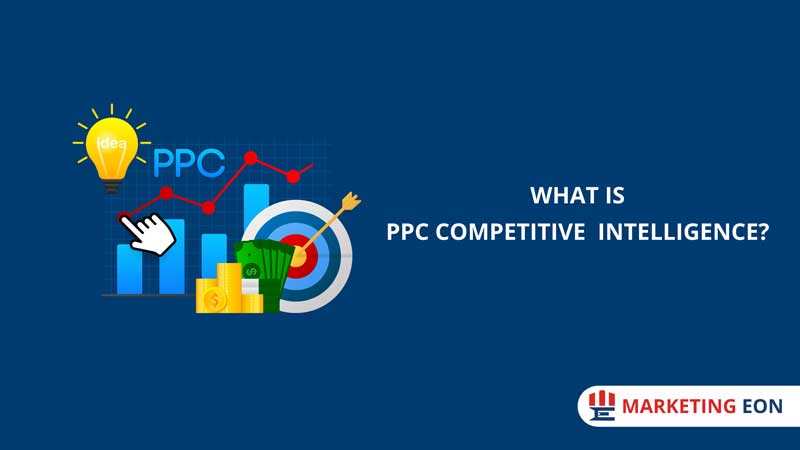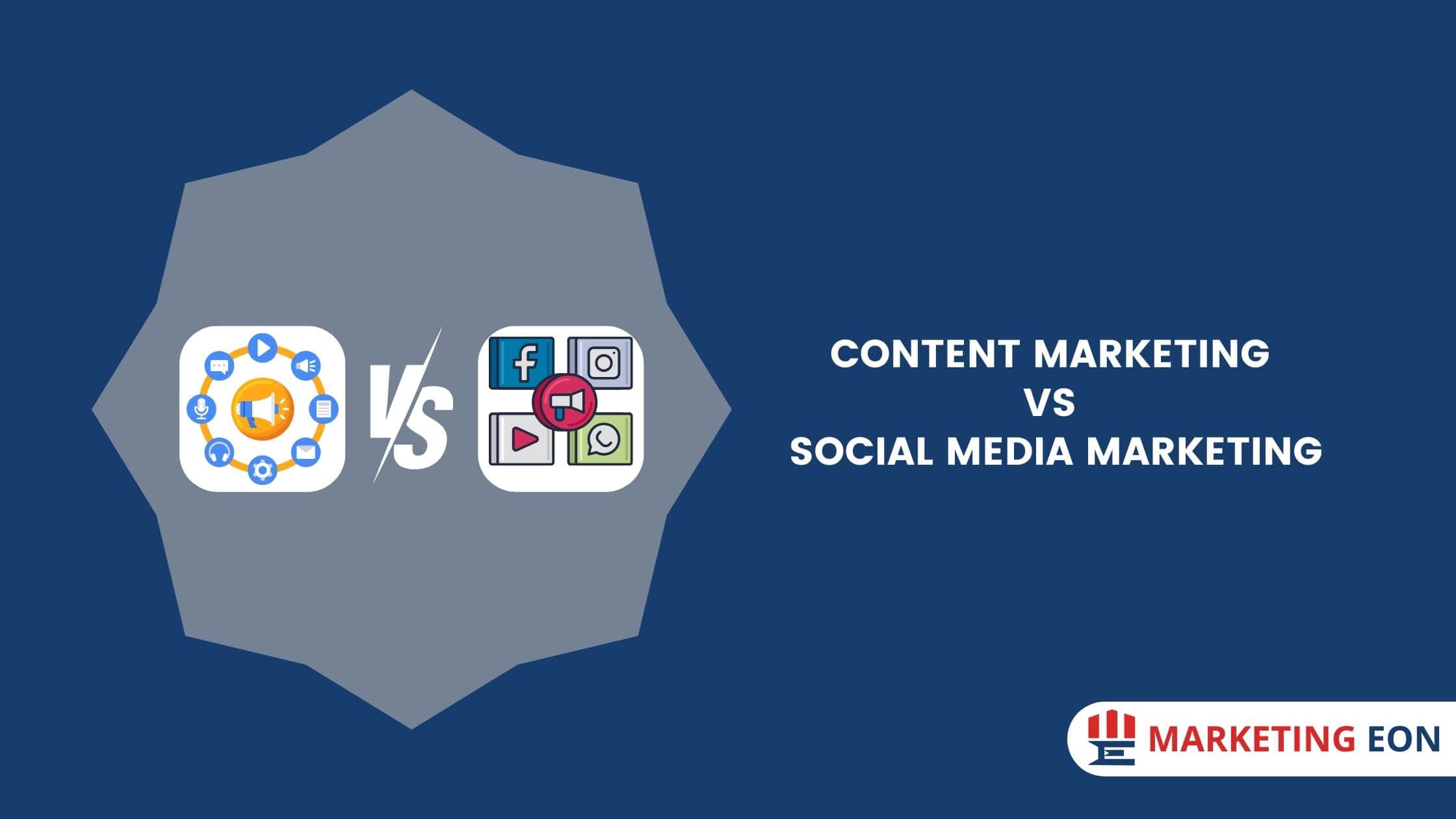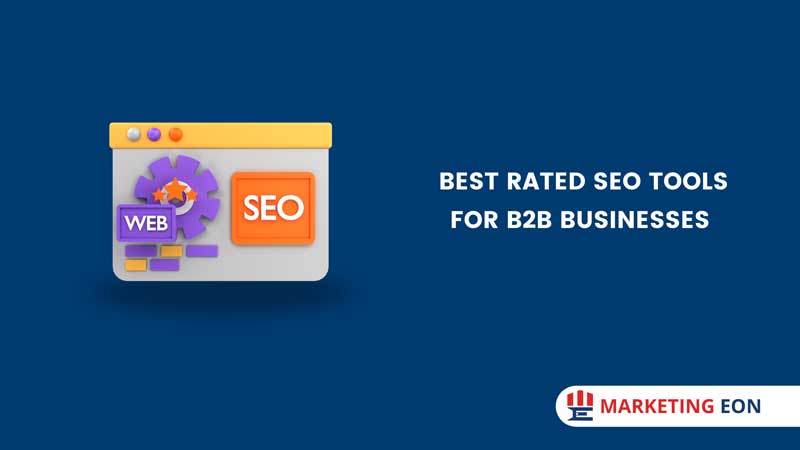Have you heard of PPC Intelligence or PPC Competitive Intelligence from people around you? If not, you must know this as early as possible because it can significantly change your PPC ad campaign game.
At present, Pay-Per-Click (PPC) campaigns play a pivotal role in driving targeted traffic and maximizing conversions for businesses because this is the fastest way to get traffic to your website. However, it is not guaranteed that a good outcome from a PPC advertising campaign will be achieved just by creating compelling ad copy and bidding on relevant keywords.
To outperform competitors and achieve sustainable growth, savvy marketers leverage the power of PPC intelligence or PPC Competitive Intelligence —a strategic approach to gathering insights and analyzing competitor data to inform and optimize their advertising efforts. In this article, we’ll explore what PPC intelligence is and how to perform competitive intelligence effectively to gain a competitive edge in the PPC arena.
What is PPC Intelligence or PPC Competitive Intelligence?
PPC Intelligence encompasses various tactics and tools to gather actionable insights into competitors’ PPC strategies, performance metrics, and creative ads. Many people also call PPC Competitive Intelligence and Competitive PPC Intelligence. So, you will not be confused now if you hear people calling it differently.
Marketers can identify strengths and weaknesses by analyzing competitor data, uncovering untapped opportunities, and refining their PPC campaigns for optimal results. From keyword analysis to ad copy optimization, PPC intelligence empowers marketers to make data-driven decisions and stay ahead of the curve in the ever-evolving landscape of digital advertising.

Why PPC Competitive Intelligence is Important
PPC advertising is crucial for businesses aiming to maximize their online presence and outperform competitors the fastest way possible. Here are some reasons why PPC competitive intelligence is so vital for businesses:
1. Identify Opportunities: By analyzing competitors’ PPC strategies, businesses can uncover valuable insights into untapped market opportunities, such as high-performing keywords or underserved audience segments.
2. Optimize Campaign Performance: Understanding what tactics and messaging resonate with competitors’ audiences allows businesses to optimize their PPC campaigns for better performance, including higher click-through and conversion rates.
3. Stay Ahead of Competitors: Continuous monitoring of competitors’ PPC activities enables businesses to stay ahead of the curve and respond quickly to changes in the market, ensuring they maintain a competitive edge.
4. Allocate Budget Wisely: By knowing where competitors are investing their PPC budget and which keywords are driving the most traffic and conversions, businesses can make informed decisions about where to allocate their advertising budget for maximum ROI.
5. Improve Ad Creatives: Analyzing competitors’ ad copy and creativity helps businesses identify best practices and trends in their industry, allowing them to craft more compelling ads that stand out from the competition.
Now you know the importance of PPC competitive intelligence for your businesses. Let me tell you the best way to perform it.
The Best Way to Perform PPC Competitive Intelligence
Performing PPC competitive intelligence involves systematically gathering, analyzing, and leveraging competitor data to inform your PPC strategy. Here’s how to do it effectively:
1. Identify Your Competitors
Begin by identifying your primary competitors in the PPC space. These are the businesses or brands that are vying for the same audience and keywords as you. Use tools like Google Ads Auction Insights and SEMrush to identify competitors actively bidding on similar keywords and targeting similar audiences.
2. Analyze Competitor Keywords
Conduct thorough keyword research to uncover the keywords that your competitors are targeting in their PPC campaigns. Identify high-performing keywords that drive traffic and conversions for your competitors and any gaps or opportunities you can exploit. Tools like SEMrush, Ahrefs, and SpyFu can provide valuable insights into competitor keyword strategies, including keyword volume, CPC (Cost Per Click), and ad position.
3. Evaluate Ad Copy and Creative
Analyze the ad copy and creativity your competitors use in their PPC campaigns. Please pay close attention to messaging, offers, and calls-to-action (CTAs) to understand what resonates with their target audience. Look for opportunities to differentiate your ads by highlighting unique selling points or offering compelling incentives. Tools like AdBeat and iSpionage can help you monitor competitor ads and track changes over time.
4. Assess Landing Pages and Conversion Funnels
Examine the landing pages, and conversion funnels your competitors use to drive conversions from PPC traffic. Evaluate their landing pages’ user experience, messaging consistency, and conversion optimization tactics. Identify areas for improvement and optimization in your landing pages to enhance conversion rates and maximize ROI.
5. Monitor Performance Metrics
Track and monitor the performance metrics of your competitors’ PPC campaigns continuously. Please focus on critical metrics such as ad position, click-through rate (CTR), conversion rate, and ad spending to gauge their effectiveness and identify trends over time. Use this data to benchmark your performance and identify areas where you can outperform competitors.
Conclusion
PPC competitive intelligence is a powerful tool for gaining insights into competitors’ strategies and optimizing your PPC campaigns for maximum impact. By leveraging the right tools and tactics to gather and analyze competitor data, marketers can identify opportunities, mitigate threats, and stay ahead of the competition in the dynamic landscape of digital advertising. Embrace the power of PPC intelligence to unlock new growth opportunities and achieve success in your PPC campaigns.
You may also read: Advantages and Disadvantages of PPC that A Marketer Must Know






